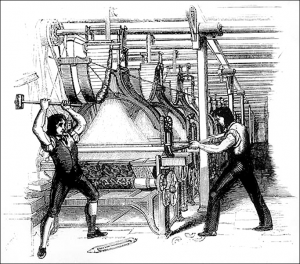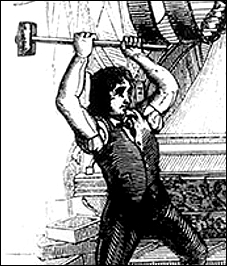“Next time I do a play — no author!”
— (Max Bialystock to Leo Bloom in Mel Brooks’ The Producers)
Amazon is the king of self-publishing. Millions of books — literally millions — have been sent to them by everyday writers of greater or lesser ability. Amazon has (or should have, IMHO) the text of all these books entered into a vast database. Some of these books are bad, and some are very bad… but some are good. Amazon can tell which is which from sales numbers and reviews — and possibly other methods such as text, semantics, plot, and other analyses.
If I were Amazon, I’d have an artificial intelligence (AI) absorbing all that writing, and learning how to write books. Then they wouldn’t need to pay authors anymore. Just as the Google 411 calls with their accents and universe of odd words trained Google’s voice recognition system, Amazon could use the voluntarily contributed books to train their artificial writer. Amazon has already gone far down the road to eliminating the middleman — the agent and the publisher. Why not eliminate the author as well? Amazon then could respond immediately to market indications that romances or urban fantasy or thrillers or cowboy allegory were the catch of the day. That AI would absorb several hundred thousand lifetimes of technique; it could generate a fresh new novel pretty much on demand.
Google too: they recently got the legal go-ahead for Google Books to scan perhaps billions of existing works into their database. Because of copyright, Google may not be able to offer the full text of every book through Google Books (currently, unless the book is in the public domain, they tell you where to buy the book after you’ve read a sample). But — Google is already creating self-driving cars. Do you think that deducing the principles of good writing from millions of example books is beyond their technology? Watch for Google to produce novels, too.

Of course, there still will be room for human-written books, just as today there is a market for custom hand-made shoes. Hand-made shoes are exceptionally expensive, but even so, I doubt there are more than 1000 shoemakers in all the world engaged in making hand-made shoes, and probably many fewer. And this, too, I find dispiriting: a productive author, over a lifetime, might write 50 books (Isaac Asimov wrote or edited more than 500 books, if I remember correctly, but most writers don’t come close, and a late-starting writer might only produce two or three). An AI could produce 50 books in a few hours at most, generating them in parallel. And then produce another fifty that were completely different. And another. Novels will become cheap — just like stockings did when humans stopped knitting them and machines began to do so. Even a life in literature as productive as, say, Stephen King’s or Asimov’s or Dickens’ will not pay a living wage.
And they’d be good stories, well told. That’s what’s galling. They’d be based on millions of examples — a familiarity with literature far greater than any individual writer could accumulate and internalize no matter how diligent a reader. You may argue that the tales would lack “soul” or “humanity,” but why should they, with a thousand years of written literature to draw on for inspiration? You may argue that such books would lack creativity, that they would repeat only what countless human authors had produced previously. Please refer to the book Twenty Master Plots. We can debate the actual number of master plots, but Shakespeare’s The Tempest and the movie Forbidden Planet are essentially the same story.
I fear that the human-written book will gain the same cachet as the human-knitted scarf: it will be thought quaint and charming, maybe a bit loosely put together, perhaps destined to be a family heirloom — but essentially it will be thought defective and not as well constructed as its machine-made counterpart.
Enjoy the craft.
Note: Who were the Luddites? You might call Grand-Dad a Luddite because he still uses his flip-phone and only makes calls on it, but the term goes back to the beginnings of the Industrial Revolution, where some people did not like the social changes brought about by machinery and factory.
Estimates hold that in 1810, there were 50,000 framework knitters in England earning a good living making stockings (everyone wore stockings in those days, men with knee-britches as well as women). It was a major industry. By 1820, there were effectively no framework knitters. A skilled knitter earned a schilling for producing two pairs of stockings, a rate of pay and production that put framework knitters in the new middle class; but a machine and some barely-skilled labor could produce hundreds, if not thousands of pairs for that schilling. The stockings were not as good as hand made. They were cut for the indentation at the ankle and the expansion at the calf rather than knitted to accommodate them. But they were good enough. And stockings suddenly became cheap. The new machine-knitted material was produced as a flat sheet on what was called a wide frame; stockings were cut out from that sheet and seamed, a method still used today for stockings that have seams. These out-of-work knitters and a few associated trades that prepared yarns and finished cloth allied themselves as Luddites, who smashed the machine knitting frames and cloth finishers and threatened the men who installed them. The Luddite rebellion was an early indication of the fact that machines can adapt to the change in required skill sets far faster than humans can.


